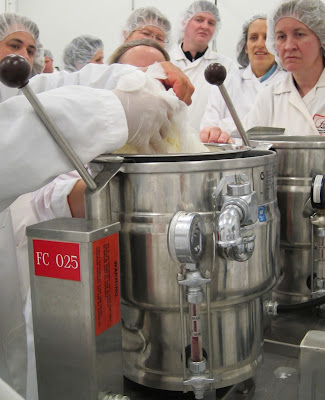Resumes: Identifying and Describing Your Talents
One of the most important things I do when helping someone with their resume is to listen to them talk, press them for details and help them identify what they have to offer an employer.
Here are a few examples with names changed to protect people’s privacy. I hope they help you to identify your own abilities and to include them on your resume.
People Skills Trump Lack of Education
Jake doesn’t have much formal education, but he’s got fantastic people skills. So that’s what we highlighted in his resume:
“Recognized as the ‘go to’ guy who will find solutions to problems (knows who to phone and how to phrase the request in order to get the desired result)”
“Comes to the table with solutions not problems by using the knowledge of what different groups need to find mutually beneficial solutions”
Volunteer Skill Development
Lisa had a great deal of volunteer experience, but she failed to relate what she had learned or done to the skills required in the workplace. Everyone knew she was a climber and had participated in several Himalayan expeditions, but they didn’t know that she had assisted in the emergency evacuation of a team member by helicopter from Nepal.
And the revised Leadership section explained that she saw herself as a role model, “assisting climbers to overcome their fears and improve their climbing and leadership skills through honesty, trust, reliability and respect.”
Concrete and Specific
It’s not enough to state that you have leadership skills. You have to describe them with enough detail that employers can appreciate what you have to offer.
Colin’s team was young and inexperienced, so he emphasized the importance of “mentoring them to think critically and to be active participants in decision making.”
Colin also had substantial volunteer experience. We provided a detailed explanation of what that had entailed: “effective decision-making by researching the issues, consulting widely, building support in advance, and presenting proposals at the appropriate time.”
Cultural Sensitivity
Your resume needs to reflect what the employer is looking for. Several of the people I’ve worked with were applying for jobs that required an understanding and respect for other cultures. We included a section on Cultural Sensitivity for items such as the following: “played a lead role in organizing a neighbourhood Aboriginal healing ceremony.”
My advice to you:
1. Don’t be afraid to ask a friend or co-worker to help you identify your strengths. They will think of things that you have missed.
2. Provide concrete explanations or examples of abstract concepts like leadership.
3. Show how your skills and experience, both volunteer and professional, are assets in the workplace.
For more information on writing your resume and applying for work, see my earlier posts:
Writing a Killer Resume
Want a Job? What do you have to Offer?
Resume + Portfolio = Success
Coming up next: Cover Letters that really Work
Here are a few examples with names changed to protect people’s privacy. I hope they help you to identify your own abilities and to include them on your resume.
People Skills Trump Lack of Education
Jake doesn’t have much formal education, but he’s got fantastic people skills. So that’s what we highlighted in his resume:
“Recognized as the ‘go to’ guy who will find solutions to problems (knows who to phone and how to phrase the request in order to get the desired result)”
“Comes to the table with solutions not problems by using the knowledge of what different groups need to find mutually beneficial solutions”
Volunteer Skill Development
Lisa had a great deal of volunteer experience, but she failed to relate what she had learned or done to the skills required in the workplace. Everyone knew she was a climber and had participated in several Himalayan expeditions, but they didn’t know that she had assisted in the emergency evacuation of a team member by helicopter from Nepal.
And the revised Leadership section explained that she saw herself as a role model, “assisting climbers to overcome their fears and improve their climbing and leadership skills through honesty, trust, reliability and respect.”
Concrete and Specific
It’s not enough to state that you have leadership skills. You have to describe them with enough detail that employers can appreciate what you have to offer.
Colin’s team was young and inexperienced, so he emphasized the importance of “mentoring them to think critically and to be active participants in decision making.”
Colin also had substantial volunteer experience. We provided a detailed explanation of what that had entailed: “effective decision-making by researching the issues, consulting widely, building support in advance, and presenting proposals at the appropriate time.”
Cultural Sensitivity
Your resume needs to reflect what the employer is looking for. Several of the people I’ve worked with were applying for jobs that required an understanding and respect for other cultures. We included a section on Cultural Sensitivity for items such as the following: “played a lead role in organizing a neighbourhood Aboriginal healing ceremony.”
My advice to you:
1. Don’t be afraid to ask a friend or co-worker to help you identify your strengths. They will think of things that you have missed.
2. Provide concrete explanations or examples of abstract concepts like leadership.
3. Show how your skills and experience, both volunteer and professional, are assets in the workplace.
For more information on writing your resume and applying for work, see my earlier posts:
Writing a Killer Resume
Want a Job? What do you have to Offer?
Resume + Portfolio = Success
Coming up next: Cover Letters that really Work




Comments